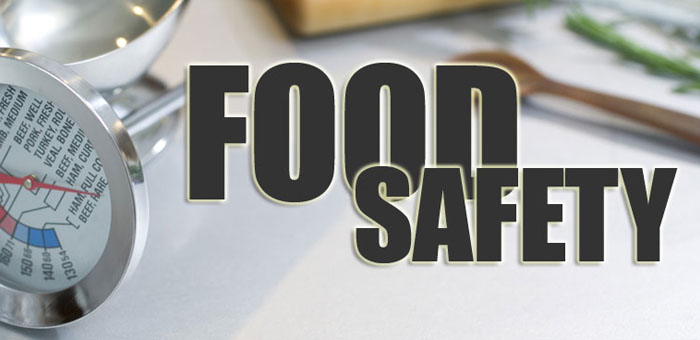Food trucks are facing new problems every day in their attempt to solidify their place in their communities. Most of the issues brought up by restaurant owning opposition are usually based on ideas which have no factual backing. Recently, we have noticed some mobile vendors have been temporarily shut down due to food safety concerns, and the mobile food industry naysayers are latching on to these reports rather quickly. To help we’ve come up with this list of food safety tips.
10 Food Safety Tips For Your Food Truck
American consumers are becoming more and more concerned with where their food comes from, how it is prepared and whether or not it is actually safe to eat. To help quell these growing food safety fears that your customers may have we suggest following these food safety tips.
Be sure all staff are properly trained.
The first of our food safety tips revolves around training. All food truck staff must have food safety knowledge because health inspectors will ask questions, and you can be fined for showing inadequate knowledge of safe food handling practices.
Wash your hands / Change gloves
One of the main culprits of foodborne illnesses is person-to-person contact resulting from dirty employee hands. Food truck employees must regularly and thoroughly wash their hands in order to protect customers and the restaurant from a food poisoning outbreak.
Handling money and food by the same person can be very problematic. This is common on a food cart/truck, and not satisfied by gloves that are not changed. Contaminated gloves are worse than dirty hands, which are easily washed.
Wash all produce.
Fresh produce is not always cooked before serving, so washing by hand is the only way to remove any bacteria that may be on the surface.
Properly store refrigerated foods.
Refrigerators must maintain a temperature at or below 40 °F to minimize bacterial growth. Also, refrigerated foods can only be stored for a certain amount of time before they start to go bad.
Cook foods to appropriate temperatures.
In order to kill any bacteria present, foods must be cooked to a minimum internal temperature and sustain that temperature for at least 15 seconds.
Clean and sanitize all food contact surfaces.
Countertops, cutting boards, utensils, pots and pans and employee hands are all food contact surfaces that must be cleaned and sanitized before and after they touch food items.
Perform self inspections.
Walk through your commissary kitchen and food truck once or twice a month. Doing this will help you identify any potential food safety concerns. You can download self-health inspection forms from your local health department website or ask your health inspector for some of their forms, so you know exactly what areas pose the greatest risk.
Know your local health codes.
State and county health departments are the direct enforcers of local, state and federal health regulations. When opening or operating a food truck, it is important to know the local health codes to avoid fines and prevent foodborne illness outbreaks.
Regularly check temperatures.
Food either in commercial refrigeration or warming and holding equipment needs to be checked every two hours. This will assure you that it is not in the food Danger Zone. It is sufficient to just check the equipment thermometer on refrigerated foods to assure that they are within safe levels.
But for prepared foods, like soups and buffet items, it is necessary to check the food’s internal temperature to assure that it is above 140 °F.
Please Note: Hot holding has changed to 135° in some locations, so it’s really important to know your local regs.
Check all incoming food shipments.
Food can be contaminated anywhere along the supply chain, so it is important that food service operators purchase foods from approved sources and know when to accept or reject fresh meat, poultry and seafood.
RELATED: 5 Common Food Safety Mistakes You Want Your Food Truck Staff To Avoid
The Bottom Line
We hope these food safety tips will help prevent you from earning a bad reputation. Don’t become that vendor known as someone who doesn’t protect their customers from food borne illnesses. If you have any additional food safety tips, share them on social media. Facebook | Twitter




